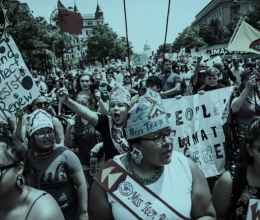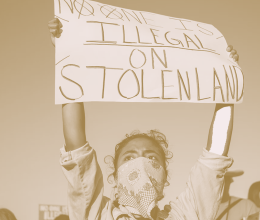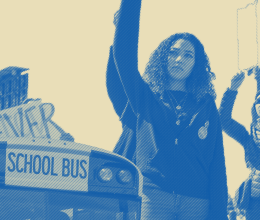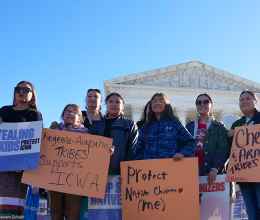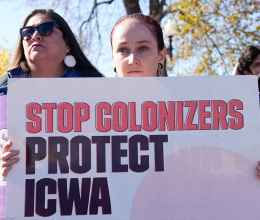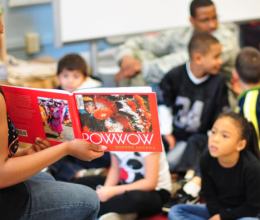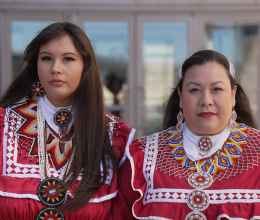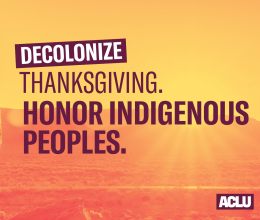
For decades, the United States has celebrated the second Monday of October as a federal holiday, an “annual reaffirmation by the American people of their faith in the future, a declaration of willingness to face with confidence the imponderables of unknown tomorrows,” according to a Senate report in 1968, the year Congress made Columbus Day a federal affair.
But in some parts of Wyoming, we are officially recognizing a different holiday: Indigenous Peoples’ Day.
Last year, the Laramie City Council announced that the second Monday of October would be known Indigenous Peoples’ Day instead of Columbus Day. Laramie is not alone. Over a dozen states and more than 130 local governments have chosen to not celebrate Columbus Day altogether or replace it with Indigenous Peoples’ Day. Eleven U.S. states celebrate Indigenous Peoples' Day or a holiday of a similar name via proclamation, while 10 others treat it as an official holiday. The 10 states that observe the holiday via proclamation are Arizona, California, Iowa, Louisiana, Michigan, Minnesota, Nevada, North Carolina, Virginia, Wisconsin, plus Washington, D.C. And the 10 that officially celebrate it are Alabama, Alaska, Hawaii, Maine, Nebraska, New Mexico, Oklahoma, Oregon, South Dakota, and Vermont.
Efforts to ditch Columbus Day continues to grow, thanks to the famed navigator’s increasingly problematic historical reputation. Last year, President Biden issued the first presidential proclamation of Indigenous Peoples’ Day.
While Christopher Columbus has been immortalized for “discovering” the New World, the term generally used to refer to the modern-day Americas, Columbus thought he’d arrived in India and named the people he found already living here “Indians.”
The name, of course, stuck. But more problematic than this misidentification was the European settlers that followed. Native Americans were first pushed out of the East and later the West. Through a series of notorious atrocities, including the Trail of Tears and Wounded Knee, the United States adopted an official expansionist policy of discriminating against Native Americans in favor of encouraging white settlers in their territories. This policy led to the subjugation, oppression, and death of many Native Americans. The effects are still being felt by Native Americans.
Through honoring the history and culture of Native Americans today and every day, the ACLU of Wyoming works to recognize the dishonor in our past and help to remedy the discrimination against Native Americans today.
The ACLU is committed to defending the rights of Native Americans and tribes to be free from discrimination and governmental abuse of power, whether the government be federal, state, or tribal.
Indigenous Justice work at the ACLU seeks to support and advance tribal sovereignty through culturally authentic and Indigenous-centered legal, policy, advocacy, and organizing work designed to dismantle colonial systems of oppression. We strive to honor and, when possible, integrate Indigenous worldviews and values into our approaches and strategies.
Over the years, the ACLU has filed important lawsuits challenging discrimination against Native American families in education, voting, and the child welfare system. Most recently, the American Civil Liberties Union, along with the ACLU of Wyoming and multiple ACLU state affiliates filed an amicus brief with the U.S. Supreme Court urging the court to uphold the constitutionality of the Indian Child Welfare Act. The Indian Child Welfare Act (ICWA) — which establishes basic requirements to protect Native American children from continued forced removal from their families, tribes, and tribal culture — is slated to be reviewed by the Supreme Court this fall via Brackeen v. Haaland.
